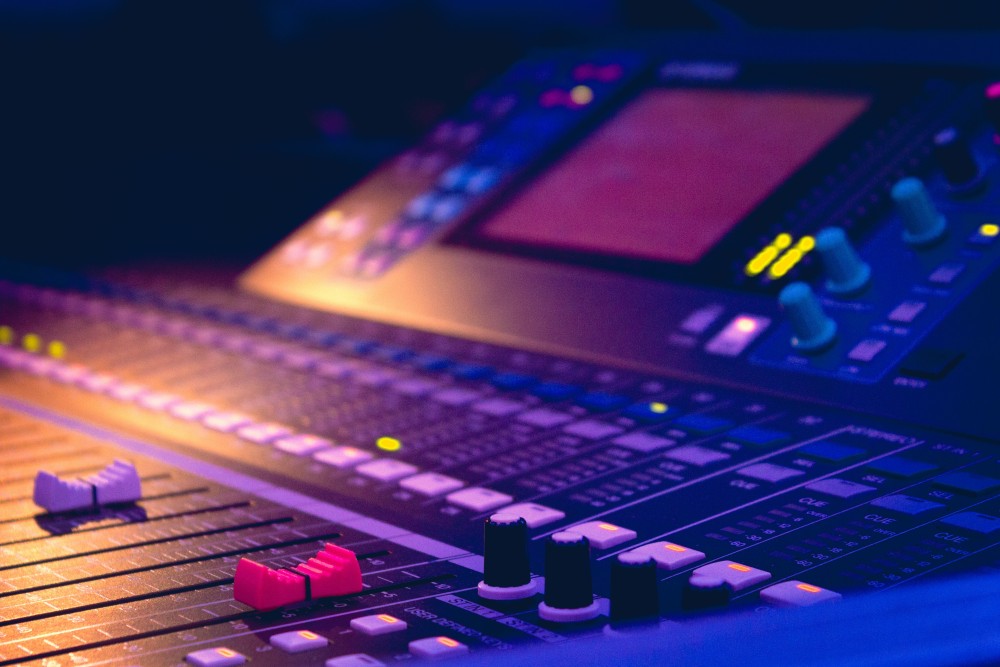Which Type Of Sound Engineer Are You Destined?
Who hates music? Music is an instant mood lifter. It touches the soul. It heals one’s mind. Music takes care of mental needs. It acts as a medium for emotions. Everyone has some form of passion either to learn or to listen for relaxation. Music theory compresses the nature and mechanics of music. Sound Engineering is learning the creative and the practical aspects of sound and music. Mostly used in film shoots, live events, stage shows, radio stations, production houses of TV programs, channels, post-production studios, etc. People who devote themselves to music as life, and if they have a strong desire to learn music and related to music then, sound engineering is perfect for them which improves their career as well as their passion. And most of the colleges provides various courses like
- Studio engineering
- Live sound Engineering
- Sound designing
- Digital audio workstation (DAW) software
- Mixing mastering software
- Electronic music production
Studio engineering
Studio engineering is related to acoustics and the scientific principles of mic placement, gear works. And it is the basis for learning how to solve problems, how to work with clients, how to organize and run recording sessions. Those recordings are made for movies and other TV shows, music with instruments and vocals recorded separately, and combined sounds during production.
Studio engineering largely falls into two categories: live and studio. Live audio engineering is responsible for sounds at live events. Live recording happens when a singer or band or musician performs live in a concert or any event in front of the public which also includes a DJ for Clubs – This is for those who want a party and love to enjoy the crowd.
Live audio engineers also manage specific jobs such as monitoring the appropriate sound levels for the room. It is necessary to know how to identify problem areas in the mix and fix them. They are responsible for placing microphones and other recording equipment and operating computer program equipment.
Live sound Engineering
Live Sound Engineering courses will equip the skills related to the sound industry as the course structure includes plenty of training and understanding of blending input sounds and balancing multiple sounds at a live event by mixing recorded voices and instruments. The sounds are equalized and amplified through loudspeakers. Thus, Sound Engineering India provides a wide knowledge of handling electronics and acoustics during a live show
Sound designing
Sound designing is responsible for producing the soundscape for a production team. Sound design is a specialized technical craft, and it is a highly creative field. It also helps artists to realize their creativity in work, the raw sounds of vocals and instruments to make a better version out of it. It is considered the most important element needed to create an appealing experience for the audience. Sound designing is the process of generating audio elements for a variety of needs. It also involves the composition of audio to create a desired effect or mood. This course is specifically designed for students who have a creative mind.
Digital audio workstation (DAW) software
A digital audio workstation (DAW) is an electronic device used for editing and recording audio files compressed within a single software that is an integrated stand-alone device with a highly complex configuration of numerous components. This course provides knowledge about professional software to produce music which includes mixing multiple tracks. An integrated audio workstation consists of audio converters and digital signals in one device that has the required processing power, and data storage. It is available on personal computers and has become the most powerful enough to run DAW software.
Mixing mastering software
Mixing and mastering are considered the most important step where audio gets its final sound and it is important to pay close attention to every little detail in the track. A professional mastering engineer can mix various audio and provide good harmonic balance. It can be accomplished by removing tonal imbalances and correcting them. This course helps the students in a higher understanding of how to combine multiple tracks and detailed knowledge of the signal flow. Audio mastering not only tightens recorded tracks but will do miracles for tracks. Mastering the track provides a much better listening experience and can make the track sound far more professional. Only a skilled mastering engineer can make a smooth flow between songs. This involves adding fades or rearranging their order to give enough time between two songs.
Electronic music production
The electronic music programming course aims to break down the sections of a song and to teach how a track is musically arranged and programmed using digital musical instruments, and drum machines. This course is designed for musicians to make layers of musical arrangements for their songs.
Thus, music production courses offer various such courses to build future professionals.





